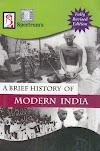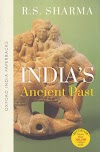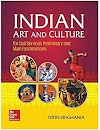Fundamental Rights (Right to Freedom)
"Freedom is the oxygen of the Soul"
Right to Freedom
- Article - 19 to 22
Article 19 - It confers 6 democratic rights to the citizens which are essential for healthy functioning of the democracy.
Article 19 (1)(a) - It guarantees to all citizen a fundamental right to speech and expression.
After Article 21, Article 19 (1)(a) has undergone most liberal interpretation at the hands of judiciary.
Supreme Court declared that Freedom of Speech and Expression is an inalienable adjunct to Right to life, i.e., it gives completeness (meaning) to Right to life.
Supreme Court explained that Right to Freedom of Speech and Expression has got the following measures -
- It allows the individual not only to express himself but to express himself freely and openly.
- Supreme Court declared in Naveen Jindal vs Union of India Case, 2004 that National Flag hoisting is also a way to express one's feeling towards the country and since expressing is an Fundamental Right, National Flag hoisting also becomes a derived Fundamental Right.
- Freedom of Speech and Expression allows a citizen not only to express his personal views and opinions but also the views and opinions of others as Fundamental right. From this concept, Right to Freedom of Press has originated as a derived Fundamental Right under Article 19 (1)(a).
- Participation in sports is also a way to express oneself, thus participation in sports also becomes a derived fundamental right.
- Freedom of Speech and Expression also include Right to Political dissent, i.e., Fundamental Right to differ from the views of the government and from this right, Right to Multi-Party democracy originated.
- Supreme Court clarified that Freedom of Speech and Expression also includes the right to have access to information. Thus, Right to Information is a derived Fundamental Right under Article 19 (1)(a).
- However, it is the RTI (Right to Information) Act 2005, which gives us the procedure to access the information.
- RIT is not limited by the boundary of the country and citizens enjoys this even while traveling/staying abroad.
Freedom of Speech and Expression is not an absolute right rather a restrictive right which can be restricted on the ground of security and integrity of India, maintenance of public order, morality and decency, defamation, contempt of court, sedition, etc.
Sedition Law -
- It was dealt under Section 124A of IPC.
- This act was introduced during the Colonial period and was one of the law enacted to stifle any voice of dissent at that time.
- Bal Gangadhar Tilak, Annie Besant, Ali Brothers, Maulana Azad, Gandhi ji, and many other nationalist leaders suffered imprisonment under this law.
- The first person to be charged under sedition law is Jogendra Chandra Bose (editor of newspaper Bangobasi) for criticising the government and the age of consent bill.
- IPC defines sedition as an offence committed when any person brings or attempts to bring into hatred or contempt or excites or attempt to excite disaffection towards the government established by law in India by words, sign, visual representation or otherwise.
- It is a non-bailable offence with punishment from 3 years to life imprisonment.
- Criticism of Sedition law - The use of sedition law by the government might go beyond the reasonable restriction. It is being misused as a tool to persecute political dissent.
Article 19 (1)(b) - It guarantees to every citizen a fundamental right to assemble including fundamental right to hold meeting and procession in a peaceful manner.
Article 19 (1)(c) - It guarantees a fundamental right to form association of any type including right to form co-operative society (right to form co-operative society was added by 97th Constitutional Amendment Act, 2011).
It also includes fundamental right to form trade union. But it does means a fundamental right to strike. Right to strike may be leagal right but not a fundamental right.
Supreme Court declared that calling band (lockdown) is completely illegal since it involves an element of force and complete shutdown of business and disturbance to public and public property.
Article 33 - It empowers the Parliament to impose restriction on the fundamental rights available to security forces in the interest of security of nation.
Using this power parliament has passed a number of laws under which some fundamental rights including right to form political association has been denied to security forces. Even the Civil Servants associated with the security forces does not enjoy the right to form political association.
Article 19 (1)(d) - It guarantees to every citizen the fundamental right to move wherever and whenever he/she wants.
However, it can be restricted on the ground of security of India, public order and in the interest of Schedule Tribes (STs), etc.
Freedom of Movement -
- Internal movement, i.e., movement within the political boundary of the country is dealt under Article 19 (1)(d).
- External movement, i.e., Right to move out of the country and come back is dealt under Article 21.
Inner line permit -
- It is a travel document that allows an Indian citizen to visit or stay in a state that is protected under the Inner Line Permit.
- These places are usually inhabited by tribals.
- Today, the system is in force in 4 states -
- Arunachal Pradesh
- Nagaland
- Manipur
- Mizoram
Article 19 (1)(e) - It guarantees to every citizen a fundamental right to reside and settlement.
Article 19 (1)(f) - It guarantees right to property as a fundamental right which was later on deleted from the list of fundamental right through 44th Constitutional Amendment Act 1978 and made it a constitutional right outside Part III under Article 300A through 44th Constitutional Amendment Act 1978.
Article 19 (1)(g) - It guarantees a fundamental right to vocation, i.e., a trade or profession of one's choice.
State can impose restriction on it by putting qualification in certain profession in public interest.
State can even overtake any business or trade from someone completely or partially provided it is in public interest.
Article 20 - It provides three protection to an individual against the coercive power of the state, i.e., it provides fundamental right to individual with respect to conviction for offence.
Article 20 (1) - It says that the state is prohibited from enacting ex post facto criminal law, i.e., under Article 20 (1) no man shall be convicted and sentenced for an act which was not a crime at the time it was commissioned, i.e., it means criminal law can't be given in retrospective effect.
i.e., Retrospectively any harsher criminal law made after the offence is not applied to that person but a relax enactment is applied.
Article 20 (2)- It prohibits the state from practicing double jeopardy, i.e., no individual shall be punished more that once in a court of law for commissioning of a single offence.
However, if a civil servant is removed or dismissed or suspended from the service by his department on the basis of his conviction in a court of law, then it does not amount to double jeopardy because department is not a court of law.
Article 20 (3) - State is prohibited from compelling an individual for giving self incriminating evidence.
Article 21 - Right to protection of life and personal liberty. It states that no individual can be deprived of his life and personal liberty except according to the procedure established by law.
Article 21 is the fundamental of all fundamental rights.
It guarantees to all individual, the right to life and personal liberty. As per Supreme Court, Article 21 does not merely guarantees right to life rather it guarantees Right to dignified life.
Supreme Court said that Article 21 is not a single fundamental right rather it is a composite right, which has given rise to a large number of inferred/derived fundamental rights.
For example -
- Right to primary education
- Right to privacy (K.S. Puttaswami Case)
- Right to reputation
- Right to speedy and fair trial
- Right to shelter
- Right to corruption free environment
- Right to clean environment
- Right to marry
- Right against cruel punishment
- Right to livelihood
- Right to health
- Right to sleep
- Right to free legal aid, etc
Supreme Court clarified that all the Fundamental Rights and DPSPs aim at providing a good quality life to the people, i.e., they want to achieve the goal given under Article 21 and thus Article 21 is considered as the 'Backbone of Part III and Part IV'.
Also, all the fundamental rights revolve around Article 21 only since without right to life enjoyed enjoyed by an individual all other fundamental rights will become meaningless and thus Article 21 has been declared as 'Fundamental of all Fundamental Rights'.
And it is also most evolved Article in the Constitution because of the liberal interpretation given to it by the judiciary.
Article 21 brings out the difference between Police State (authoritarian dictatorship) and Constitutional State.
Procedure established by the law
- The concept is originated in England but the principles applied in India is taken from the Japanese Constitution.
- Under this principle (of judiciary), when a person is deprived of his life and liberty, the court will examine whether -
- There is a law in existence which authorises the executive to deprive an individual of his life and liberty.
- Further, the court will examine whether the law has been passed by competent authority or not.
- And were all the procedure correct or not while formulating the law.
- The court however will not examine the fairness of the law or the intention of the legislature or the motive behind the law and thus on this ground court can't declare the law as unconstitutional.
- The principle of procedure established by law relies more on good sense of the legislative and the strength of public opinion in the country.
- Thus, the approach of procedure established by the law provides a protection to an individual only against the arbitrary action of the executive but not against the legislature.
Due process of law -
- The concept is originated in USA and confers greater power to the judiciary.
- Under this principle the court will examine all the three facts which it examine under the principle of procedure established by law but here the court will also see whether the law itself is fair or not by applying the Principle of Natural Justice.
- Thus, the judiciary will question the intent of the legislature also, i.e., due process of law extents protection to an individual both against the arbitrary action of the executive as well as legislature.
In the context of Article 21, Indian Constitution provides for only the 'procedure established by law'.
- Procedure established by law - mentioned in CoI under Article 21
- Due process of law - not mentioned in CoI
However, Supreme Court in Maneka Gandhi Case (1978) held that the Article 21 has to be read by incorporating the principle of Natural Justice, i.e., Article 21 includes due process of law also (implicitly).
Principle of Natural Justice -
- It is a collection of three principles -
- No man shall be punished unheard.
- No man can be the judge of his own case.
- Authorities must act bonafide (i.e., in good faith without any biasness).
- The purpose of these principles is to exclude chances of anyone acting arbitrary against any other person.
- They aim at humanising decision making and action, i.e., every action must be supported by a justified reason.
- According to the Supreme Court, these principles are universal in nature, i.e., they are binding on all authorities including the judiciary, private individuals, legislature, executive and other entity.
- Though these principles are explicitly mentioned in the constitution (under Article 311), yet Supreme Court held that these principles are inherently found under Article 14 and 21.
- These principles are so important that they can be regarded as the part of Basic Structure of the Indian Constitution.
Article 21 A - It was introduced by the 86th Constitutional Amendment Act, 2002 under which state shall provide for free and compulsory education for all children between age 6 years to 14 years as provided by the law.
Note - Constitution does not mentioned about elementary, primary, secondary or high school education. It only mentioned free and compulsory education for children.
Thus, it is a fundamental right of a child to get free education which can be enforced upon the state. However compulsory education will be the responsibility of the Parents/Guardians under which they sall be duty bounded to send their child/ward to educational institutions.
Thus, 86th Constitutional Amendment Act 2002 also introduced a fundamental duty under Article 51A (k).
Article 22 - It provides protection during arrest and detention in certain cases.
Article 22 does not guarantee against arrest and detention but it provides protection in case a person is being arrested or detained.
Protection under Article 22 comes into action from the moment of arrest/detention and not before that.
Article 22 confers three rights on the person who is arrested or detained.
- No person who is arrested shall be detained in custody without informing him the ground of his arrest and he shall be entitled to consult an attorney or lawyer of his choice to defend himself.
- Supreme Court held that the arrested person has the right to inform his friends or relatives about his ground of arrest so that he will be able to defend himself.
- Further, Supreme Court held that the person shall not be arrested merely on the ground of suspicion.
- The arrested person shall be produced before the nearest judicial magistrate within 24 hours of arrest.
- No person shall be detained in custody beyond the period for which his detention was authorised by the magistrate.
The above three protections under Article 22 shall not be available to a person who are detained under 'Prevention detention Law' and also to 'Enemy aliens', i.e., a person belonging to enemy nation.
Previous Article - Fundamental Right (Right to Equality)
Next Article - Other Fundamental Rights
Notes on other subjects
Optional Subject
Note - This is my Vision IAS Notes (Vision IAS Class Notes) and Ashutosh Pandey Sir's Public Administration Class notes. I've also added some of the information on my own.
Hope! It will help you to achieve your dream of getting selected in Civil Services Examination 👍

.webp)



0 Comments